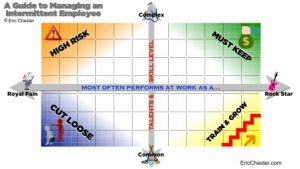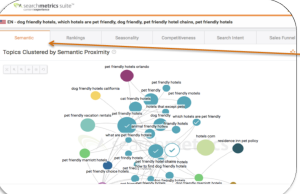Tools are only useful if they’re used well. If you can’t aim appropriately and hit the nail on the head, your hammer will probably be more destructive than helpful. Pay-per-click campaigns are similar. If your IT consultant PPC campaign has a poor strategy, lackluster execution, and is otherwise subpar, most likely you’ll just be throwing money out the window.
Make the money count. Shore up your strategy and fine-tune your tactics.
A great PPC campaign requires several pieces in order to be successful, and each piece needs to be high-quality before you can expect to see results. What follows are the essential pieces to the puzzle that every PPC campaign for IT consultants needs in order to be successful.
Overarching Strategy
Like all paid media campaigns, PPC for IT consultants needs an overarching strategy to guide what keywords you target, your budget, and what messaging points you choose. For example, if you choose a longtail keyword strategy the ads will look very different than if you chose a more generic keyword. Before you launch your ads, be sure to sit down and thoroughly plan out your pay-per-click campaign from start to finish.
Persona Analysis
Who are you targeting? A large part of your strategy should focus on the persona you’re trying to target. Most businesses will (should) already have this mapped out as part of their overall business strategy and management. However, when it comes to your PPC campaign for IT consultants, dive deeper into each persona. What search terms do they use? Are they more likely to use high-level jargon or generic searches? Of course, this will vary greatly based on what level of employee you’re targeting.
Creating your PPC for IT consultants’ ads using the wrong verbiage can mean that you’re either getting zero clicks or clicks from an irrelevant audience. Don’t pay for meaningless traffic.
Comprehensive Keyword Research
Using the wrong keywords can cause your Google Ads campaign to fail before it even starts. There are several different tools IT consultants can use to find the right keywords. The first is obvious: brainpower. Rack your brain for ideas of what words your clients would use to describe both themselves and your services. For example, as a marketing firm, we may use terms like SERP and negative keywords. But our clients would be more likely to search for “SEO for IT consultants” than “SERP results using negative keywords.”
Another great tool is Google Search Console. This can help you optimize your keywords for Google specifically and gain a better understanding of where and for what keywords your website is ranking. This free service can help you understand if Google is crawling your site and troubleshooting issues.
There are also many different third-party applications that can help you track rankings, keywords, and competition. Check out SERanker and SECockpit.
Optimized Keyword List
When was the last time you optimized your keyword list? If you can’t remember the last time you updated the keywords, changed strategies, or put negative keywords to good use, then you’re behind. Your keyword list needs to be continuously optimized. One new competitor for a keyword can cause your budget to skyrocket and results to plummet. On the other hand, new opportunities could be arising that have low competition and CPC that you’re missing out on. To create a great PPC for IT consultants’ campaign, aim to optimize your keyword list at least once a week.
Balance of Competition vs. Search Volume
The right balance of competition versus search volume is tailored to your business goals and personal budget. Typically, the keywords with the highest search volume are also most competitive, and therefore more expensive to rank for. However, if you aim to rank for a very low-cost keyword that has low competition, there’s a high chance no one is searching for that keyword.
A longtail strategy is a great way to find the right balance and still hit your audience. Longtail keywords are often very niche. For example, instead of just “cloud computing,” you’re trying to rank for keywords like “cloud computing for non-profits.” This keyword will have a lower level of competition due to its specificity but will hit your audience.
Constant Adaptation
Just as you need to be constantly optimizing your search terms, it’s a good idea to consistently adapt your campaign strategy based on the data you’re receiving. For example, if you’re not getting any results with ranking for high-competition keywords, try using longtail strategies. If you don’t notice any results with landing pages, try to give your SEO strategy an overall boost with content clustering and pillar pages. The most successful PPC campaigns for IT consultants are data-driven and constantly reacting. Stagnation could be the death of your PPC strategy.
Digital & Social Articles on Business 2 Community
(49)
Report Post







